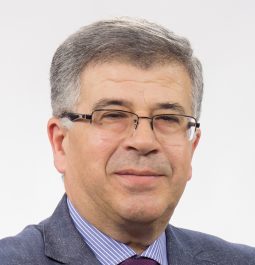Presentation
The Masters in Territorial Management is structured so as to enable students to acquire knowledge and develop instrumental and systemic skills in the fields of Geography and Territorial Management, through advanced training in an Area of Specialization, and the crossing of knowledge with other areas. Curricular and extracurricular activities are aimed at individual performance and the development of interpersonal skills that allow a high degree of autonomy, capacity for teamwork and openness to lifelong learning.
Objectives
The course also aims to enable students to acquire the knowledge and skills to:
- deepen their theoretical and methodological knowledge of Territorial Planning and Management;
- apply methodologies and techniques for spatial analysis, diagnosis and prospecting;
- develop spatial analysis models using Geographical Information Technologies and Systems;
- acquire the scientific and technical expertise to draft territorial development and planning instruments and to understand the repercussions of technical and political decisions on the territory;
- conduct and develop studies and projects in the areas of Environment, Territorial Planning and Development, Remote Sensing and GIS, in an integrated perspective of Territorial Management;
- assess studies and projects scientifically and technically in the fields of Environment, Development, Territorial Planning and Management.
- apply knowledge and skills in solving new and/or complex issues, in multidisciplinary contexts.
- develop original applications and research work.
- communicate knowledge and know-how in the fields of Geography and Territorial Management to different audiences.
Areas Of expertise
- Environment and Natural Resources
- Remote Sensing and Geographic Information Systems
- Territorial Planning and Management
Curricular structure
Duration: 2 years / 4 semesters Total Credits: 120 ECTS (60 in curricular units + 60 (55+5) in the non-taught component)
Modalities of non-taught component: Dissertation, Project Work or Practical Work Experience with Report
Students complete 50 credits in all the taught units offered. Students also complete 10 credits in a free-choice regime (in post-graduate level curricular units of NOVA FCSH, of NOVA or of other national or foreign higher education institutions, by means of a protocol). In the 3rd semester, the student must attend the Seminar on Methodologies in Territorial Management (5 ECTS).
The Master’s degree corresponds to Level 7 of the NQF and EQF - National Qualifications Framework/European Qualifications Framework.

